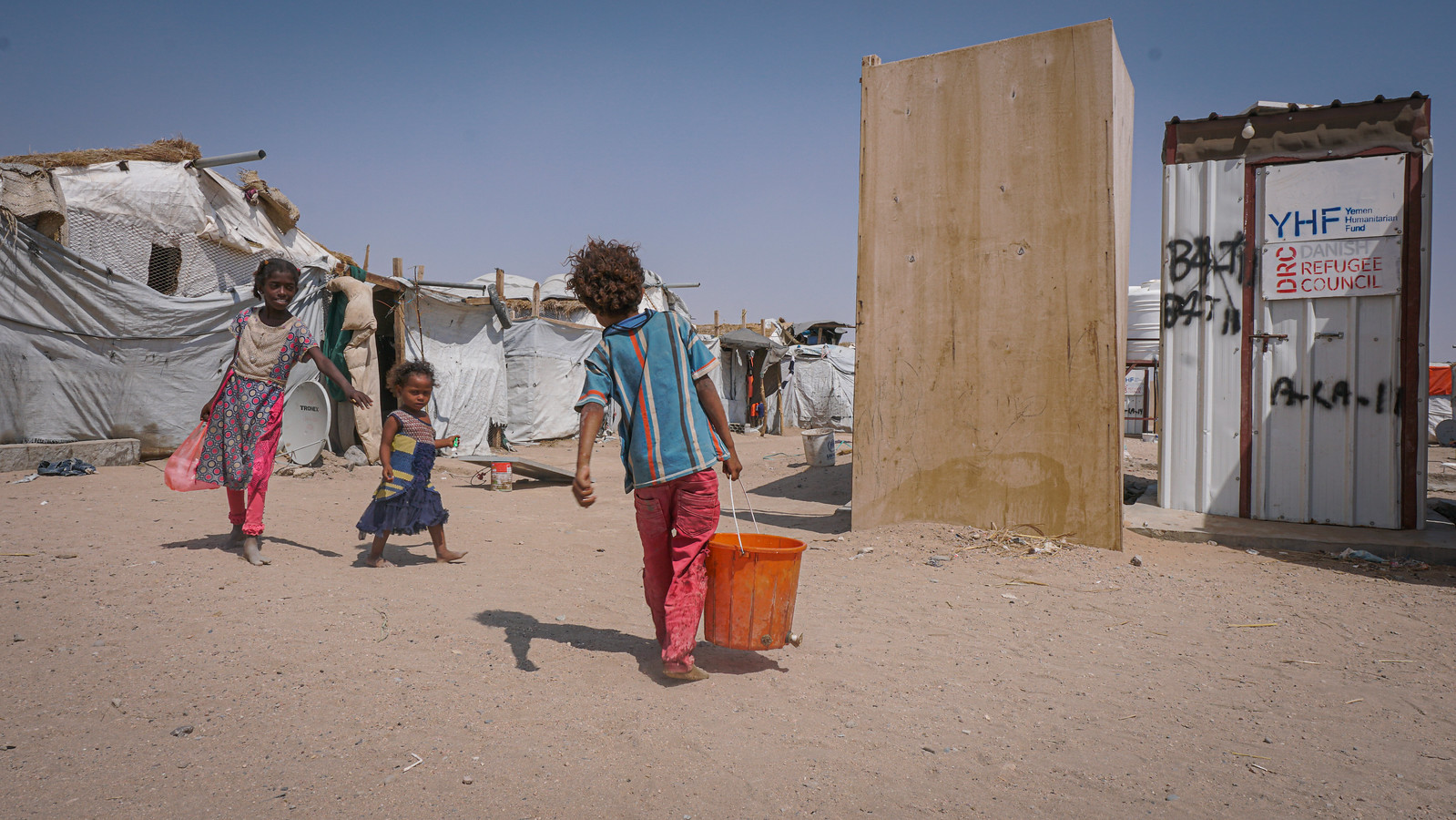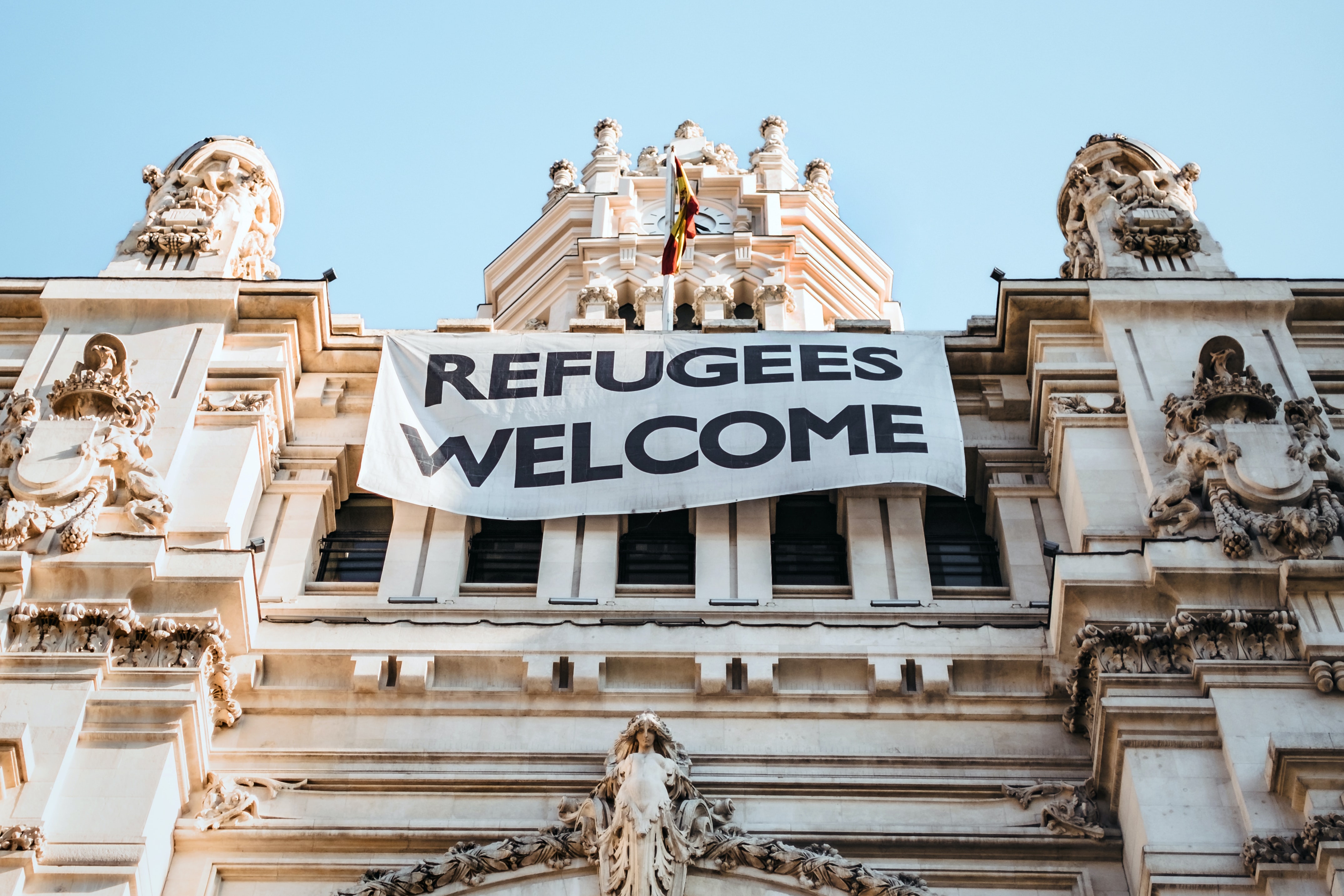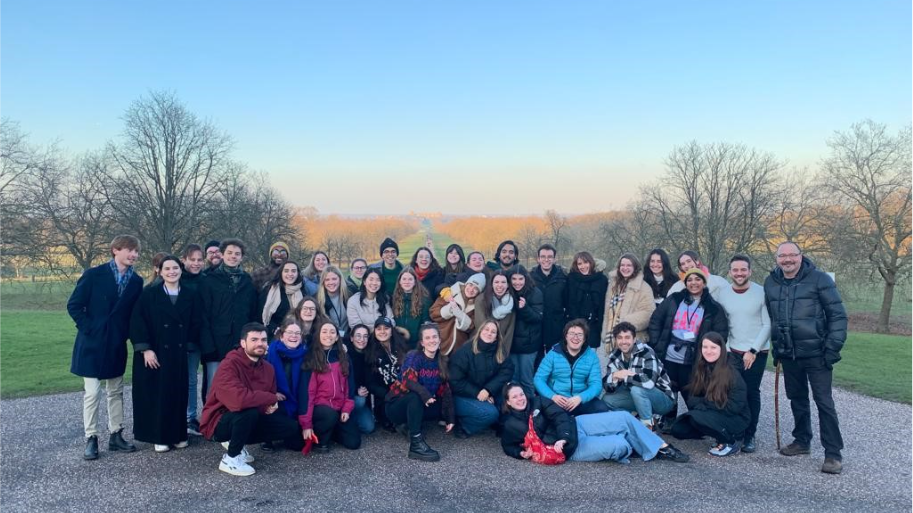During the Spring Break, a group of enthusiastic International Development and Humanitarian Emergencies students, accompanied by Dr Myfanwy James, an IDHE alumnus now a professor at LSE’s Department of International Development, embarked on a transformative three-day journey to Geneva, Switzerland. Known as the global hub for humanitarian agencies, Geneva offered us a unique opportunity to visit some of the world’s most prominent humanitarian organisations.
Day 1: UNICEF, WHO
Our trip commenced on a very high note with a visit to the UNICEF office in Geneva. Here, we were treated to a very compelling presentation by two remarkable women Valentina Pascale and Annemarie Swai from UNICEF. Valentina began the presentation with a creatively crafted video, succinctly encapsulating UNICEF’s mission, notably emphasising their commitment to “reaching the hardest to reach” and ensuring the protection of all children’s rights. Through interactive discussions, we delved into UNICEF’s multi-sectoral approach, blending developmental and humanitarian mandates. The session shed light on UNICEF’s proactive stance before, during, and after crises, categorising interventions into distinct levels based on severity.
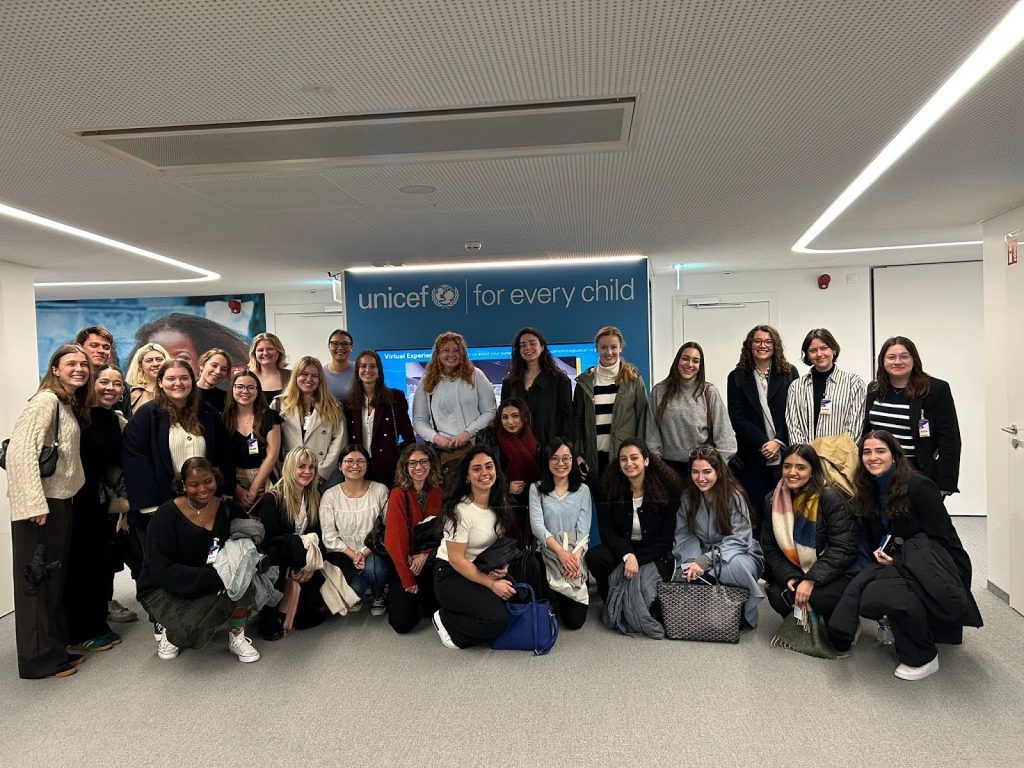
Following this, Annemarie, the regional emergency advisor for Europe and Central Asia Regional Office (ECARO), emphasised the significance of governmental engagement and regional partnerships in enhancing humanitarian actions. Emphasising the need for flexible funding mechanisms, such as individual contributions, the presentations concluded with an engaging Q&A session, offering us deeper insights into the workings of UNICEF.
Our next destination of the day was the World Health Organization (WHO), where we got to have lunch in their highly diverse cafeteria and browse the bookstore and the central area before our sessions began. Our sessions commenced with a talk by Dr. Margaret Harris, who provided valuable insights into WHO’s operations, particularly during the challenging times of the COVID-19 pandemic. We seized the opportunity to glean first-hand experiences and perspectives from her distinguished career.
Our second session was with Dr. Boris Pavlin who delved into the realm of epidemiology, offering a compelling exploration of health-related states’ distribution. Sharing pivotal moments from his fieldwork, including encounters with the Marburg Virus in Angola and the Ebola outbreak in West Africa, Dr. Pavlin emphasised the importance of community engagement, localisation, and cultural sensitivity in combating infectious diseases. Despite the departure from our usual academic focus, this session proved profoundly enlightening and thought-provoking.
To end our very eventful first day in Geneva, we indulged in some well-deserved downtime with a group dinner at a fondue restaurant, savouring the essence of Swiss cuisine and relishing the opportunity to unwind and reflect on our enriching experiences.
Day 2: Sphere, UNHCR
Our second day of meetings began with a visit to Sphere headquarters where we spoke with the Head of Digital Communications for Sphere, and the Training Lead at CHS Alliance. Sphere was founded in 1997 following the humanitarian sector’s failure in responding to the Rwandan genocide as outlined in the Joint Evaluation of Emergency Assistance to Rwanda (JEEAR). The organisation educates and advocates for the humanitarian principles and applies minimum standards to emergencies. The Sphere Handbook is the organisation’s main publication, which outlines the humanitarian charter and the core humanitarian standard and provides the minimum standards in four technical capacities: water supply, sanitation, and hygiene promotion; food security and nutrition; shelter and settlement; health. IDHE students who attended the Cumberland Lodge retreat were well versed in the Handbook’s necessity during the simulated construction of displacement camps.
CHS Alliance is a consortium of over 200 member organisations that uphold the Core Humanitarian Standards in practice. The organisation publishes verification reports and data sets on humanitarian organisations. Both organisations focus on accountability to affected populations and ensuring that those impacted by crisis can exercise their rights. Witnessing the moral conviction of the professionals of these two organisations and their dedication to the humanitarian principles was inspiring, especially as they work to adapt the humanitarian system.
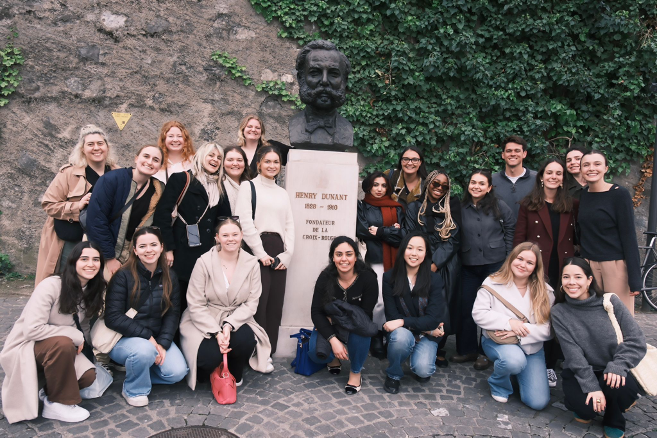
After a quick lunch break, we walked to the United Nations High Commissioner for Refugees headquarters for a presentation on the refugee system and UNHCR’s work. We arrived at the visitor’s centre and stood around the Memorial to UN aid workers killed in the 2003 Canal Hotel bombing in Baghdad, Iraq. Visualising the memorial of an event we learned about in lectures solidified the reality of work in the humanitarian sector. The presentation from the UNHCR representative, reviewed the differences in forms of displacement, examined UNHCR’s scope in a displacement crisis, and the group was quizzed on global displacement data.
Following our day of meetings, the group took the remainder of the day to explore Geneva. Many students toured the city via the self-guided Humanitarian Trail of the Red Cross walking tour which highlighted the history of the Red Cross and the role of international organisations in Geneva. After some downtime in the very windy Geneva, the group met back up for drinks then headed back to their rooms. A few adventurous students and Professor Myfanwy James took the ferry across Lake Geneva, while those wary of the cold took the buses back.
Personally, the second day in Geneva solidified a lot of what we were taught in the International Development and Humanitarian Emergencies program. Moving from a place of study to standing in the very rooms and speaking to the professionals currently engaged in the work was eye-opening. Sharing this experience with our peers was invaluable and throughout the weekend, after our meetings had ended and sometimes late into the night, we sat together and spoke about what we had learned. We examined the current failings of the humanitarian system and what we, as the next generation of humanitarians, could do to alter it for the millions of people it serves.
Day 3: OCHA, WTO, ICRC
We began Day 3 bright and early with the sun greeting us at the United Nations Office for the Coordination of Humanitarian Affairs (OCHA). Our first talk was held by Humanitarian Affairs Officer, and LSE Alum, Patrick Duplat. Patrick spoke about the fundamental importance of humanitarian access, beginning with the 4 humanitarian principles. His field experience showcased the importance of wide scale acceptance of humanitarian principles by all actors, especially de facto authorities for a project to be successful. He also spoke on the humanitarian dilemma when working with combatants demands which compromise organisational values to ensure access in conflict which can create unprogressive precedents for future access.
He went on further to link this to the role of OCHA as a body to bring together the humanitarian community in learning and collective action. Personally, one surprising finding was learning the role that OCHA has in shielding and facilitating operational actors from negative repercussions with strong messaging when reporting on humanitarian access. In short – OCHA takes on the critique!
Patrick also spoke about how humanitarian access can be improved, not simply through negotiating but through humanitarian politics and diplomacy. Looking at current programmes from Gaza and Ukraine, we were advised to think critically about access from a political perspective first, and then to apply technical solutions to the problem – all with the principle of ‘do no harm’ at the forefront!
Our 2nd OCHA session focused on Accountability to Affected Populations. Humanitarian Affairs Officers (Accountability to Affected People), Sandra Zerbo, and Rachel Maher led an Ebola outbreak simulation. We split into groups: host community, Internally Displaced Peoples (IPDs), International Organisations, the Red Crescent/Cross, local NGOs and the United Nations. My group – the IDPs, decided we wanted committee representation to communicate with the other stakeholders, insisted on formal IDP status, and demanded our rights with Water, Sanitation and Hygiene and testing facilities!
This activity was incredibly insightful in outlining important mechanisms of accountability. This included iterative adaptation to affected populations’ needs, treating people with trust, and dignity, coordinating with agencies on the ground, and learning from previous lessons. Sandra and Rachel emphasised that as humanitarians we must not reinvent a situation every time we go into the field, but we must apply learning from previous instances to reduce suffering and ensure no one is left behind.
This activity was followed by a Q&A with Sandra, who provided invaluable insight that no journal can provide – the emotional labour in implementing humanitarian principles on the ground. One heartening takeaway for myself and the group was that humanitarianism cannot simply be a job, but it is a VOCATION for those who believe in making change in the world.
Over lunch, we were able to explore Palais de Nations – where we spent far too much time in the gift shop geeking out on what United Nations merchandise to get! Of course, we could not forget a group photo with the infamous Alley of the Flags. Thank you to alum Nina Lacroix for hosting us.
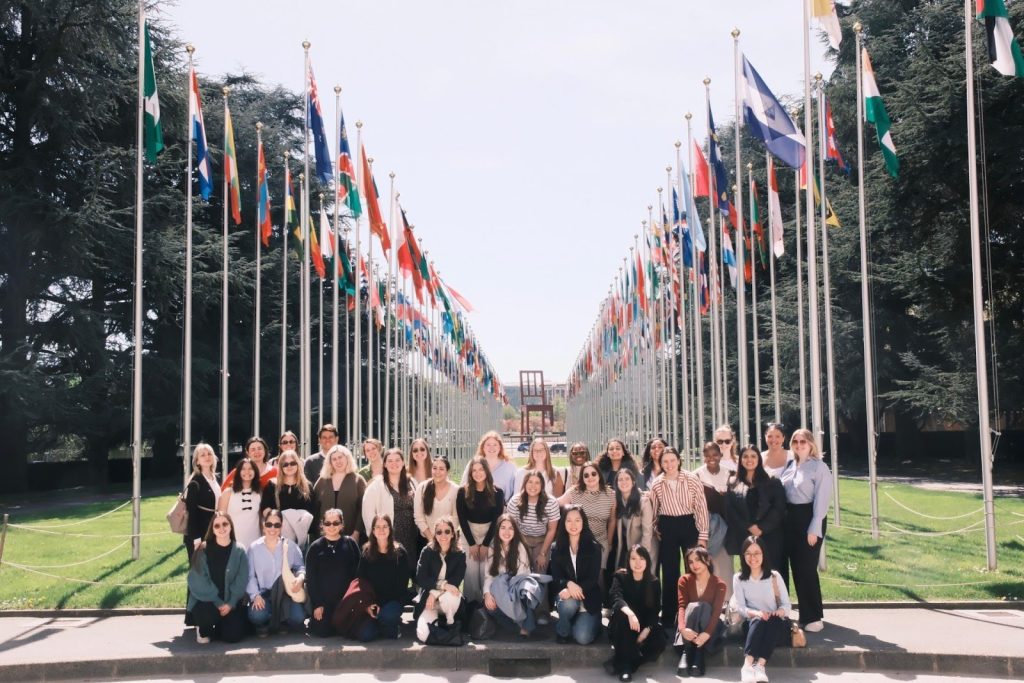
Following this we visited the World Trade Organisation. Economics Affairs Officer, Vishva Subramaniam, gave a presentation on the role of the WTO in humanitarian responses. It was refreshing to hear about how as an international organisation the WTO Secretariat encourages development through region-specific plans and provides assistance to member countries’ economic recovery to humanitarian disasters.
Finally, our last visit of the trip was to the ICRC where we were hosted by another IDHE Alum, Jean-René Beauchemin. Having just been in our spot a few years prior, Jean-René largely spoke about the recruitment process for the ICRC via 2 paths – as a field delegate and via traineeships. We also heard about his first mission in Cameroon and his role in the mitigation of armed groups. And notably, Jean-René told us how useful David Keen’s Complex Emergencies class is in his day-to-day field work!
On the last evening, some flew home whilst others wished Geneva bon voyage by either watching the sunset from a rooftop bar, pizza by Lake Geneva, or visiting the pub!

The views expressed in this post are those of the author and do not reflect those of the International Development LSE blog or the London School of Economics and Political Science.


